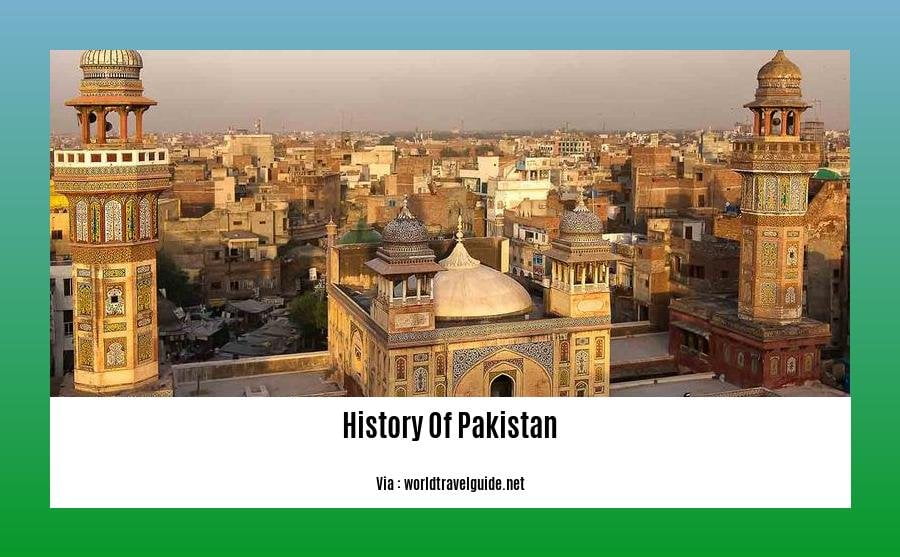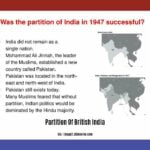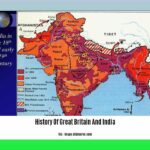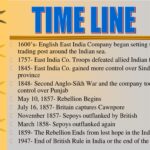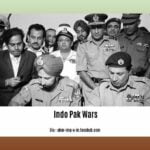Embark on an enthralling historical odyssey with “Unveiling the History of Pakistan: A Historical Odyssey.” Delve into the captivating timeline of this vibrant nation, where the past intertwines with the present, shaping its unique identity. Explore the profound role Islam has played in shaping Pakistan’s political, cultural, and social landscape. [History Timeline Role of Islam See also]
Key Takeaways:
- Pakistan emerged as a nation in 1947.
- The partition of India and Pakistan caused mass migration and violence.
- Pakistan has faced challenges, including conflicts with India, political instability, and economic difficulties.
- East Pakistan became Bangladesh in 1971.
- Pakistan has experienced military coups and democratic transitions.
- It is a nuclear-armed state and an ally of the US.
- Pakistan faces ongoing security threats.
History of Pakistan
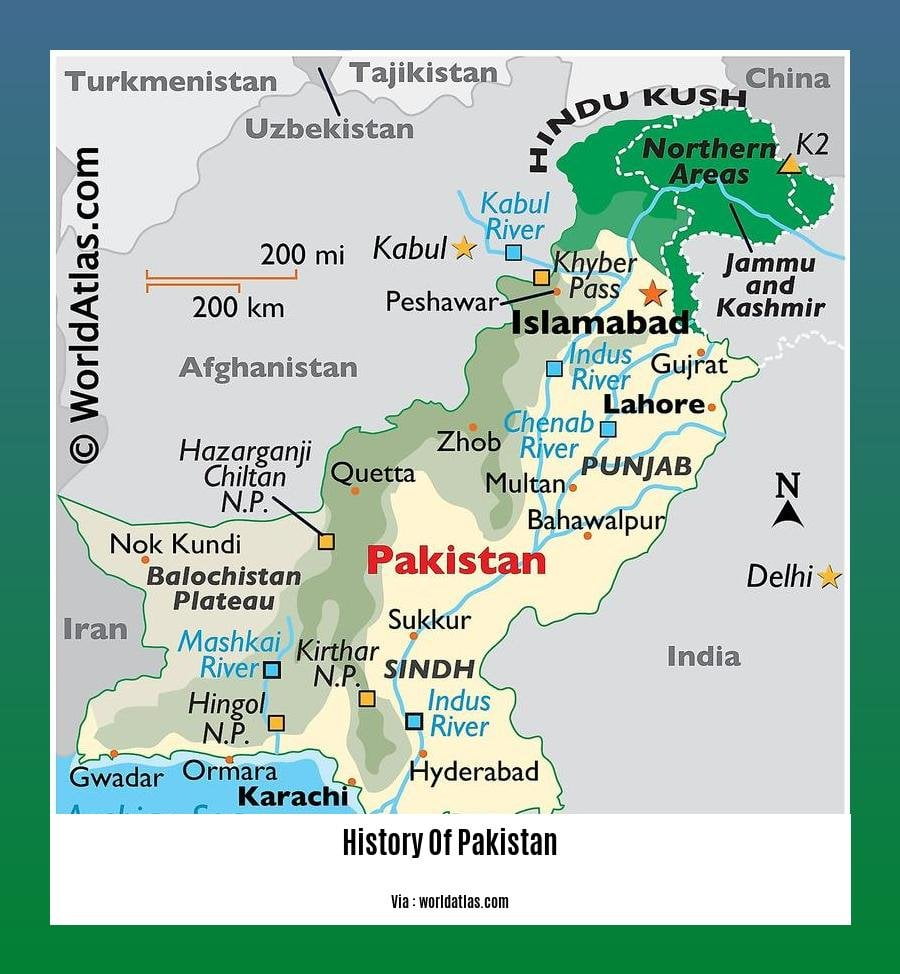
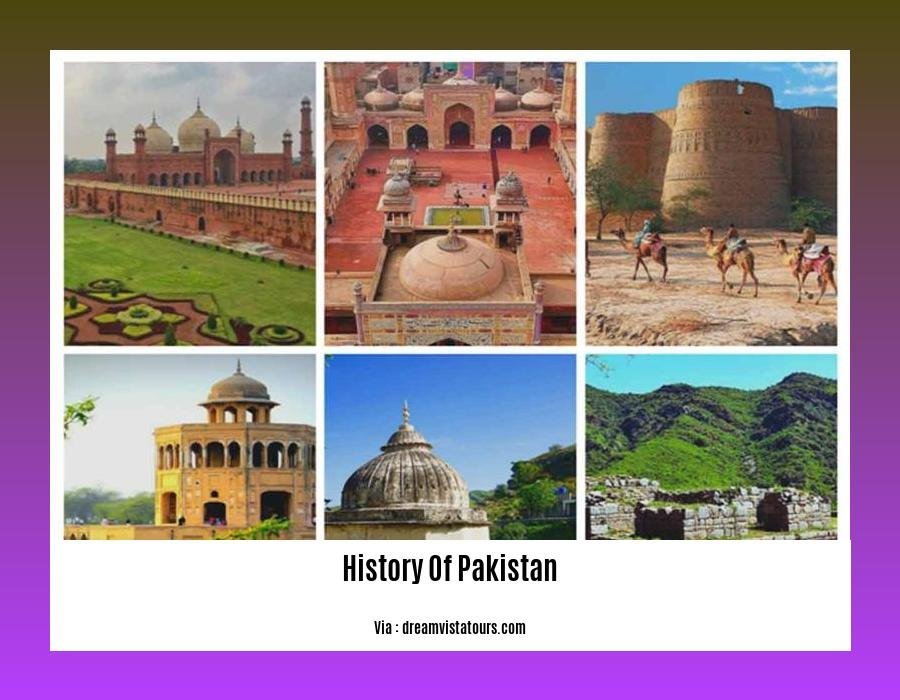
Pakistan, located in South Asia, bears a captivating history marked by independence, struggles, and significant achievements. Let’s delve into its rich past:
Emergence of Pakistan
In the mid-20th century, Pakistan emerged as the Muslim-majority state after the partition of British India in 1947. The partition led to mass migrations and communal conflicts, shaping the geopolitical landscape of the region.
Challenges and Conflicts
Pakistan’s early years were fraught with challenges. Territorial disputes with India, political instability, and economic hardships tested its resilience. The 1971 civil war resulted in the secession of East Pakistan, which became Bangladesh.
Military and Political Transitions
Pakistan’s history is marked by periods of military rule and martial law. However, it has also witnessed democratic transitions and popular movements led by charismatic leaders like Zulfikar Ali Bhutto and Benazir Bhutto.
Regional Dynamics and Geopolitics
As a nuclear-armed state, Pakistan plays a key role in regional and global affairs. Its alliance with the US in the war on terror has been significant. However, security concerns, including Islamist militancy, sectarian violence, and regional rivalries, remain challenges.
Enduring Legacy
Despite its trials, Pakistan retains a rich cultural heritage and a resilient spirit. Its vibrant arts, music, and cuisine reflect its diverse history. The country continues to grapple with challenges, but its people remain steadfast in their pursuit of progress and a brighter future.
- The Partition of British India displaced millions and created a new nation.
- The Indo-Pak wars have shaped the relationship between the two countries.
- Pakistan’s development of a nuclear program has raised concerns about regional stability.
Role of Islam
From its very inception, Islam has been an integral part of Pakistan’s identity. The religion played a pivotal role in the creation of the country and continues to shape its politics, society, and culture.
Key Takeaways:
- Islam is the state religion of Pakistan, with over 95% of the population being Muslim.
- The majority of Muslims in Pakistan are Sunni, with smaller Shia and Ahmadi minorities.
- Islam has been used to justify both progressive and conservative policies in Pakistan.
- The role of Islam in Pakistan is a complex and evolving one.
Source:
- Islam in Pakistan
- The Role of Islam in Pakistan: A Historical Perspective
See also: The History of Pakistan
From ancient civilizations to the modern state, Pakistan’s history is a tapestry woven with diverse threads.
Key Takeaways:
- Neolithic Roots: The region boasts the Neolithic site of Mehrgarh, dating back 9,000 years.
- Indus Valley Civilization: The region was home to the Indus Valley Civilization (IVC), a flourishing urban civilization from 5,000 years ago.
- Crossroads of Cultures: Located at the gateway of South Asia and Central Asia, Pakistan has witnessed the ebb and flow of civilizations.
- Islam’s Influence: Islam has played a pivotal role in Pakistan’s history, shaping its culture and politics.
- Quest for Independence: Pakistan emerged as an independent nation in 1947 after the Partition of India.
- Challenges and Progress: The country has faced challenges like territorial disputes, political instability, and economic hardships, but also achieved significant progress.
- Gateway to the Orient: Pakistan’s geographical location makes it a crucial trade route between East and West.
Relevant Sources:
FAQ
Q1: When did Pakistan gain independence?
A1: Pakistan emerged as the largest Muslim state in 1947 after gaining independence from British India.
Q2: What is the official religion of Pakistan?
A2: Islam is the state religion of Pakistan, with over 240 million adherents.
Q3: Who was the first Prime Minister of Pakistan?
A3: Liaquat Ali Khan became the first Prime Minister of Pakistan after independence in 1947.
Q4: What is the national language of Pakistan?
A4: Urdu is the official national language of Pakistan, while English is also widely used as a second language.
Q5: What is the currency of Pakistan?
A5: The Pakistani rupee (PKR) is the official currency of Pakistan.
- Mastering Leader in Spanish: The Complete Guide - April 19, 2025
- Uncovering Surprising Parallels: England Size Compared to US States - April 19, 2025
- Old Mexico Map: Border Shifts 1821-1857 - April 19, 2025
